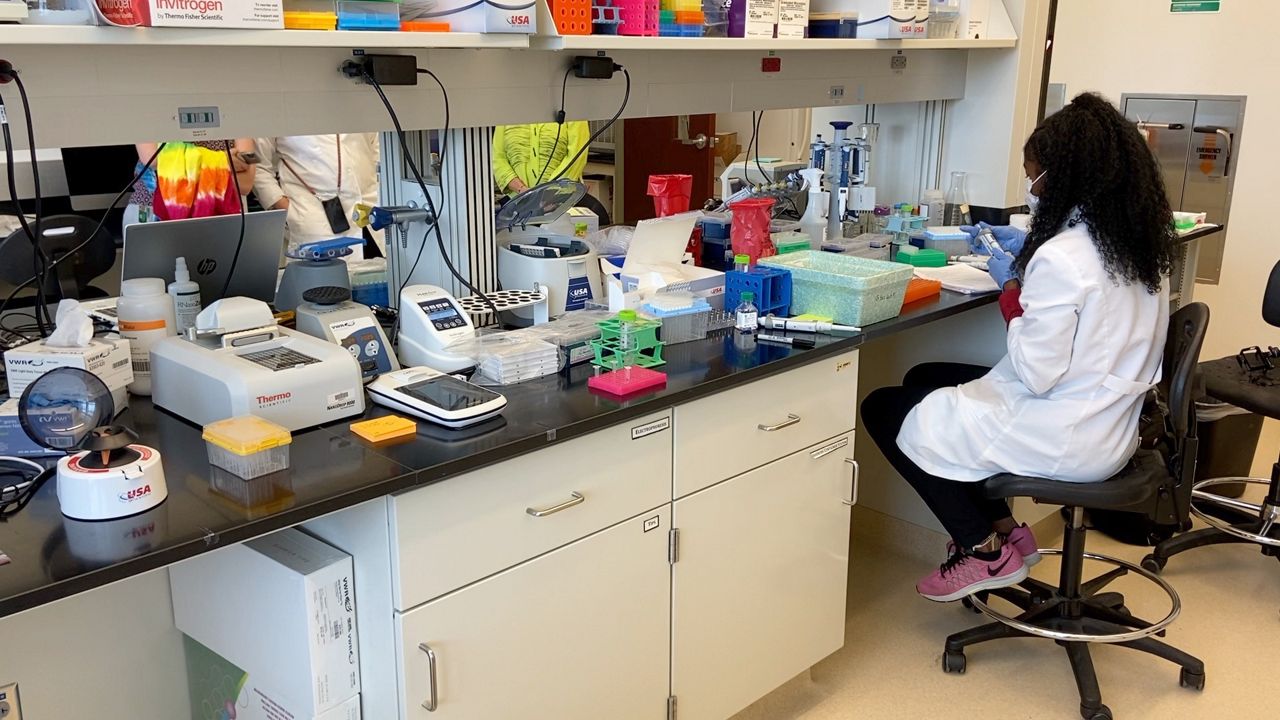LEXINGTON, Ky. — Richmond, Virginia-based biotech company Aditxt Inc. has partnered with Lexington-based clinical diagnostic lab SphereDX to offer an advanced COVID-19 monitoring tool called AditxtScore for COVID-19.
What You Need To Know
- The tool is a blood test that acts as a comprehensive immune response monitoring tool
- The test makes it possible to assess the strength of an individual’s immune response to COVID-19
- SphereDX conducted a pilot program in assisted living facilities in the Lexington area
- The results showed 33.3% of the residents tested had a suboptimal immune response
The AditxtScore for COVID-19 is a blood test that acts as a comprehensive immune response monitoring tool that tracks multiple combinations of antibodies and neutralizing antibody responses against several different antigens, according to Aditxt’s website. The test makes it possible to assess the strength of an individual’s immune response to COVID-19. Under the agreement, SphereDX will make the AditxtScore for COVID-19 available throughout its laboratory locations serving Kentucky, Ohio and Indiana.
“There is so much uncertainty out there right now with Kentucky hospitals experiencing critical staffing shortages, kids starting to go back to school, and businesses re-opening during a dramatic surge in COVID-19 cases,” said Bobby Sturgeon, CEO of SphereDX. “By making the AditxtScore for COVID-19 available to our providers and patients, we can offer the most detailed and accurate view of an individual’s immune response, giving people the facts they need to make informed decisions about booster vaccinations, return-to-work protocols, mask use and other preventive measures.”
Sturgeon said the value of this high-fidelity type of antibody testing became apparent when SphereDX conducted a pilot program at assisted-living facilities in the Lexington area. The program results showed that roughly one-third of fully vaccinated residents had suboptimal immune responses and required booster shots.
The SphereDX pilot program tested a total of 99 fully vaccinated residents ages 63 to 99. The results showed 33.3% of the residents tested had a suboptimal immune response. Of that group, 8.1% showed no discernable immune response to COVID-19, according to a press release from Aditxt. The Centers for Disease Control and Prevention has recommended people with moderately to severely compromised immune systems receive an additional dose, also called a booster, of the mRNA COVID-19 vaccine.
“If we really want to get ‘back to normal’ with confidence, we are going to need personalized immune testing that delivers detailed information on the strength and durability of each individual’s immune response,” said Amro Albanna, co-founder and CEO of Aditxt. “We are thrilled to be working with SphereDX to bring that level of certainty and confidence to the people of Kentucky, Ohio and Indiana.”
AditxtScore for COVID-19 was introduced in August 2020.
“This multiplex approach to capturing the full spectrum of biomarkers associated with COVID-19 delivers a highly detailed snapshot of an individual’s immune response in a single test cycle,” according to a press release. “It also includes the ability to measure neutralizing antibodies, the subset of virus-specific antibodies that block infection by interfering with cell entry of virus particles.”
The goal for the results from an AditxtScore for COVID-19 is to provide clinicians with the data needed to understand the strength and quality of each individual’s immune response to COVID-19. Albanna said the information could be used to guide further intervention for those who have not developed a strong immune response and to reassure those who have developed a strong response that no other action is required.
“This information is particularly important for the millions of immunocompromised patients who may not develop an adequate immune response to vaccination or exposure for multiple reasons,” he said. “Those reasons include immunosuppressive disease, immunosuppressant medications, anti-cancer medications affecting immune function, or the presence of long-term chronic disease that has exhausted the body’s natural immune response capacity.”



